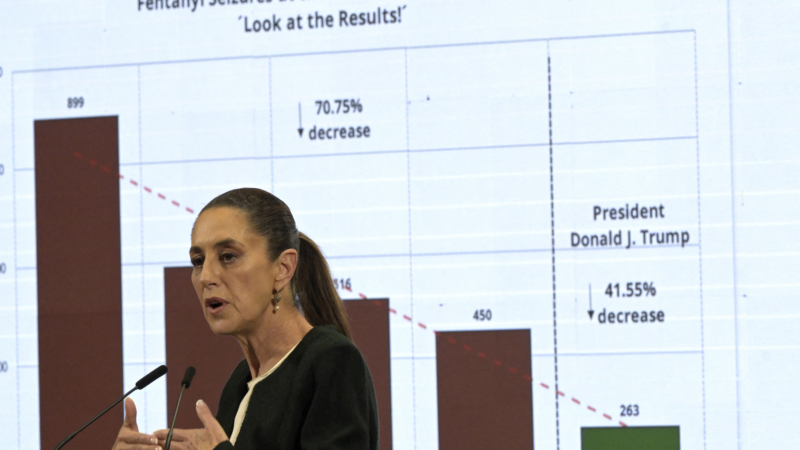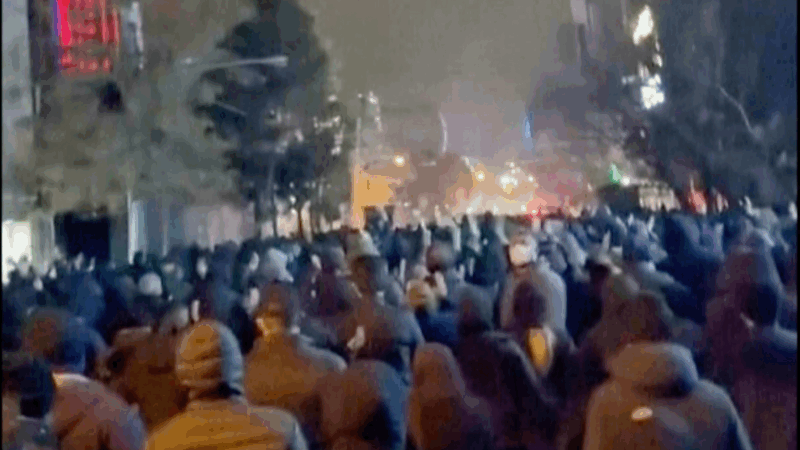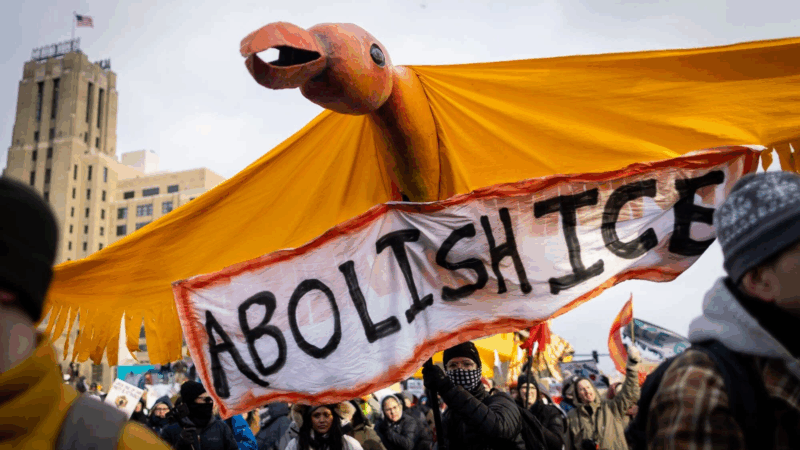Trump’s latest tariff twist: a break for Mexico and Canada
Two days after putting 25% tariffs on goods from Mexico and Canada, President Trump said on Thursday that he will largely lift them — the latest twist in his on-again, off-again approach to an issue that has sent markets into a tailspin.
Trump started to tap the brakes on the tariffs on Wednesday, after talking to the Big 3 U.S. automakers. And then after a conversation with Mexican President Claudia Sheinbaum on Thursday, he said on social media that he would give a break to all Mexican goods covered by the U.S-Mexico-Canada Agreement (USMCA).
“I did this as an accommodation, and out of respect for, President Sheinbaum,” Trump said in his post, thanking Sheinbaum for her work addressing migration and fentanyl trafficking.
A few hours later, he signed executive orders that included relief for Canadian goods covered by the USMCA.
The break lasts until April 2 — or maybe longer
The reprieve will last until at least April 2, when Trump plans to begin “reciprocal tariffs” on goods from a wider range of countries.
The rates, products and countries affected by the upcoming reciprocal tariffs are still to be determined.
Canada and Mexico may avert the 25% tariffs beyond April 2, if they show they have made more progress curbing fentanyl trafficking, a senior administration official told reporters on a conference call ahead of the signing, speaking on condition of anonymity.

Trump originally planned to start the tariffs on Feb. 1 to push the U.S. neighbors to do more stop migration and drug trafficking — but then delayed them by a month.
Then last week, he told reporters he was looking at April 2 as a start date for the tariffs — before reversing and putting them in place on March 4.
Mexico made its case with charts
Canada and Mexico beefed up border enforcement to try to avoid the tariffs. Prime Minister Justin Trudeau spoke to Trump on Wednesday evening in a call he described as “colorful,” telling reporters afterward that Canada should expect to be in a trade war with the United States for the foreseeable future.
Sheinbaum described her phone call with Trump as “respectful.” She said she walked Trump through a set of his own government’s statistics showing a huge drop in the amount of fentanyl being seized by border authorities.
“I asked him, ‘How can we continue to collaborate if the U.S. is doing something that hurts the Mexican people?'” Sheinbaum told reporters. She explained that it wasn’t a threat. “I just asked him to understand my position,” she said.
Sheinbaum had been set to announce retaliatory measures at a mass rally on Sunday. Now, she said it will be a celebration.
Venezuela’s exiles in Chile caught between hope and uncertainty
Initial joy among Venezuela's diaspora in Chile has given way to caution, as questions grow over what Maduro's capture means for the country — and for those who fled it.
Sunday Puzzle: Pet theory
NPR's Sacha Pfeiffer plays the puzzle with KAMW listener Daniel Abramson of Albuquerque, N.M, and Weekend Edition Puzzlemaster Will Shortz.
Inside a Gaza medical clinic at risk of shutting down after an Israeli ban
A recent Israeli decision to bar Doctors Without Borders and other aid groups means international staff and aid can no longer enter Gaza or the West Bank. Local staff must rely on dwindling supplies and no international expertise.
Iran warns US troops and Israel will be targets if America strikes over protests as death toll rises
Iran's parliament speaker warned the U.S. military and Israel would be "legitimate targets" if America strikes the Islamic Republic, as threatened by President Donald Trump.
Bob Weir, guitarist and founding member of the Grateful Dead, has died at 78
For three decades with the Grateful Dead and three more after the group ended following the 1995 death of his bandmate Jerry Garcia, Weir helped build and sustain the band's legacy across generations.
Nationwide anti-ICE protests call for accountability after Renee Good’s death
Activist organizations are planning at least 1,000 protests and vigils this weekend. Officials in major cities cast Saturday's demonstrations as largely peaceful.








